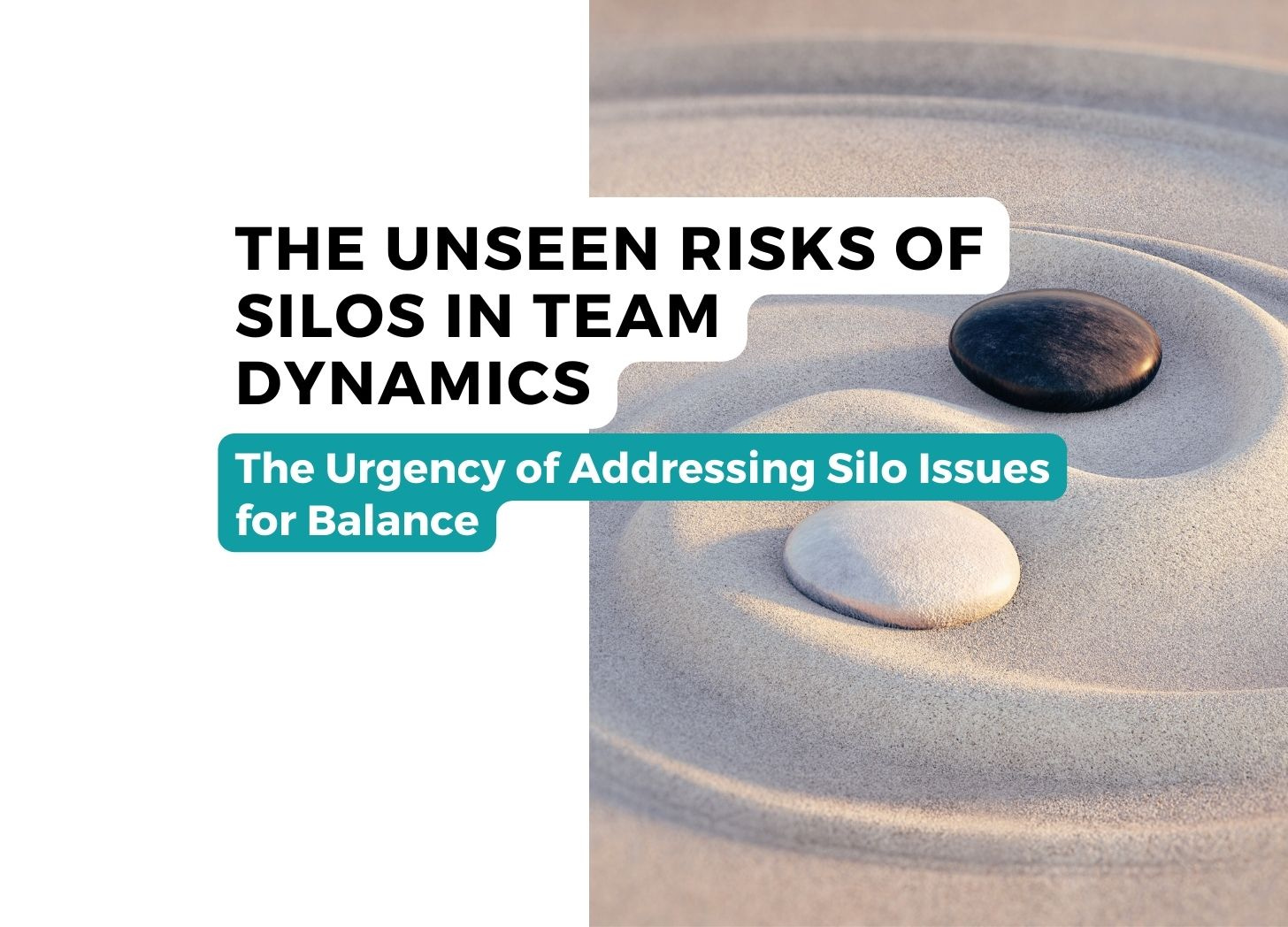The Impact of a good Work-Life-Balance
on Reducing Team Silos.
Most conversations about work-life balance center on individual employees or freelancers striving to distinguish between their professional and personal lives. As an employer or team leader, it's essential to consider the broader implications of this balance, particularly about software development teams. A significant issue that often arises in such groups is the formation of 'silos.'
Silos are created when specific team members are tasked with particular roles, leaving others on the sidelines. This often happens due to tight deadlines, high-pressure situations, or limitations imposed by clients or product owners.

The problem with “Silos”
As company leaders, we want to have a constant flow and a solid foundation as a platform to grow our business. Any form of unforeseen fluctuation is problematic. Thus, we must ensure our working culture is as grounded as possible. It doesn’t need to be the greatest ever, nor should it be the worst possible; it’s about finding the sweet spot where employers are happy to come to work every day.
Being a “Silo” means having many unnecessary tasks and capabilities only you can fulfill, which is great when you want to be irreplaceable; it’s bad if you want to become a happy person at work.
It’s important to understand that Silo means stress for everyone. Unnecessary stress will nag down every person and team over time. Thus, everyone should be interested in mitigating this stress immediately.
But how does work-life balance relate to Silos? 🤔
To achieve work-life balance for your team members, ensuring that everyone's role is interchangeable is crucial. This might seem strange at first, given that many employees deliberately tried to make themselves irreplaceable in the past due to negative company culture.
For example, in a factory, one worker's shift ends, another begins, and there's a brief handover. Applying the same concept to software development would mean that your development process or team doesn't rely solely on one developer.
Creating a scenario where any developer can take on any task reduces the reliance on specific people for specific tasks. This is a critical step towards work-life balance, as it allows employees to disconnect from work, knowing their duties are covered.
The negative Aspects:
Many bad things can and will happen if we don’t take care. So let’s get into it.
This high level of expectation can lead to job burnout, impacting not only the individual but also the entire team's morale.
Pressure on the individual
Pressure on the individual, who is a Silo. Being the only person able to fix something, you cannot become disconnected from your workplace anymore. Vacations or non-work related activities like family will make it impossible to integrate healthily.
Employee & Family
An imbalanced work-life balance will hurt the employee’s family, negatively affecting the bond between the company and the employee.
Team Pressure
Pressure for the team because everyone is relying on a single person to do things; if this person is not available, it quickly becomes stressful for others when they need to try to mitigate a problem while lacking skills.
Knowledge Hoarding
Silos often lead to knowledge hoarding, where specific team members possess expertise not shared with others. This could lead to losing valuable insights if the team member leaves the company or is unavailable. Sharing knowledge is crucial for the growth and adaptability of any team.
Dysfunctional Teams
The company will have non-functional teams without being aware of the root cause. It’s hard to detect this problem since it’s often not a communicated problem.
Increased Risk of Burnout
Individuals considered silos are under immense pressure to perform consistently, as they become the "go-to" person for specific tasks. This high level of expectation can lead to job burnout, impacting not only the individual but also the entire team's morale.
Hindered Innovation
When team members are locked into specific roles and tasks, there's little room for cross-pollination of ideas and skills. Silos can discourage creative problem-solving and innovation, essential for a company’s growth and adaptation to market changes.
Poor Code Quality & Results
In software development, silos can result in poor code quality. When only one person understands a particular portion of the codebase, there's a lack of collective ownership and less thorough code reviews. This may lead to buggy software and technical debt.
Inefficient Resource Allocation
When only specific individuals can perform certain tasks, allocating resources efficiently is difficult. If that individual is swamped with tasks only they can do, other team members may be underutilized, resulting in inefficiencies that could hurt productivity.
Increased Onboarding Time for New Team Members
New team members will find it more difficult to get up to speed if they can't easily learn from others due to the existence of silos. They will have to rely solely on the siloed team members for guidance, prolonging the onboarding process and slowing down the team's overall pace.
Ineffectiveness in Scalability
As businesses grow, it’s important that teams can scale along with it. A siloed environment hampers scalability because new members would each have to go through an extended learning curve to understand the areas that have been siloed off.
Damaged Team Cohesion
Over time, the existence of silos can harm the social fabric of a team. As some members become increasingly specialized, others may feel excluded or undervalued, decreasing team cohesion and morale.
Conclusion
Leaders and employees should take care of our relationship with “work.” Work is important; it feeds most of us, and we make our living there, but eventually, we must be able to live.
If we don’t take care, it ricochets back to us; if we take care, it benefits us greatly!
My personal recommendation is to integrate work-life balance as a strategy.
Have a great Sunday!
Adrian


